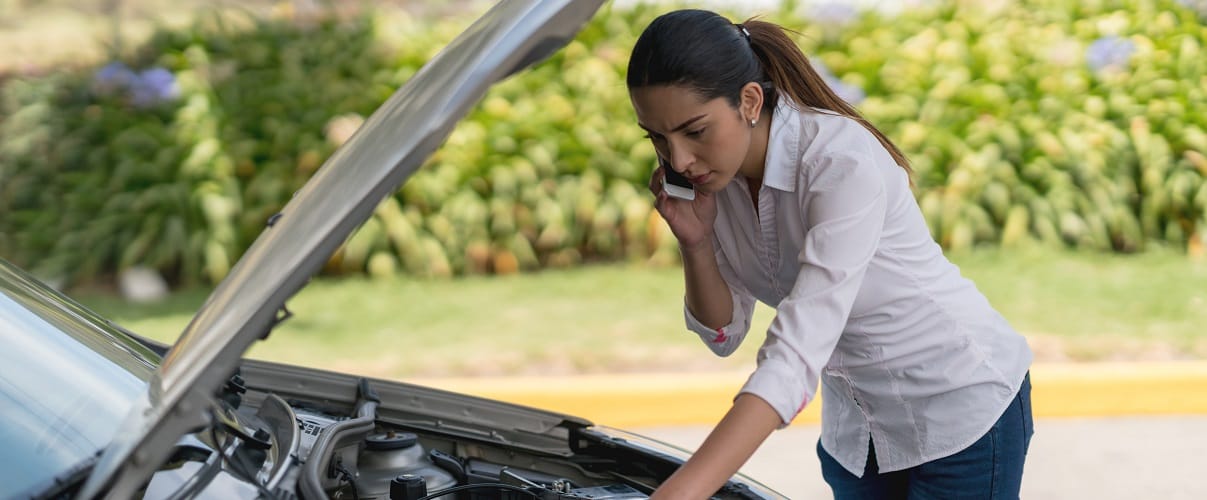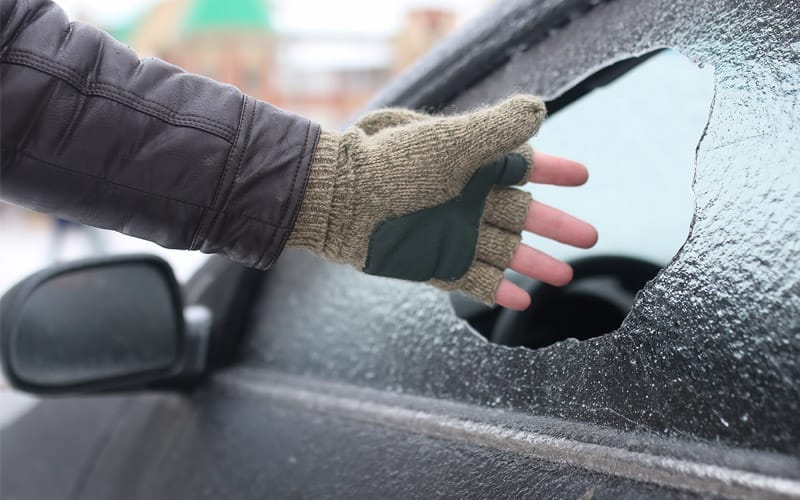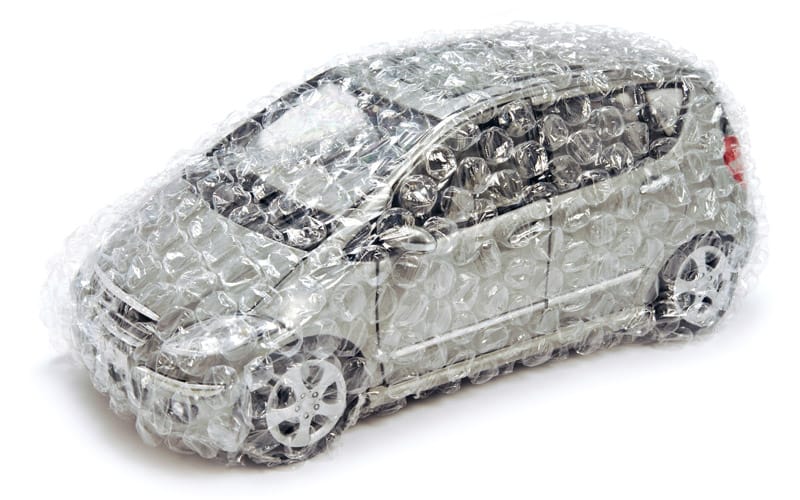Van Hire Knowhow
Which parts of a hire van does Collision Damage Waiver cover?

Hire van insurance works quite differently from the insurance you’ll have on your own van. In most countries, every rental van needs a basic package of three types of cover, but how you get them varies. Find out what you need to know about rental van insurance.
All rental vans have to have three basic types of cover to be on the road: damage cover, theft cover and third-party cover. (The only places where this isn’t true are Chile and Mexico, where damage and theft cover aren’t required.)
If you’re living in Europe, all three will be included in the price when you book a rental van. If you don’t live in Europe, you might have the option of using the damage and theft cover provided by your credit card. Note: This kind of cover isn’t technically insurance. It’s a waiver, which means the company waives its right to make you pay for damage.
Here's what you need to know about damage, theft and third-party cover:
Collision Damage Waiver
Collision Damage Waiver protects you if the van’s bodywork gets damaged. The most you’d have to pay is a maximum called the ‘excess’ (in the USA, it’s called the ‘deductible’).
However, Collision Damage Waiver doesn’t cover every part of the van. It covers the van’s bodywork, so if there’s any damage to the windows, wheels or interior, for example, you’ll have to pay the full cost of repairing the damage (unless you have additional cover).
Any cover your rental van has will only work if you stick to the rules of the rental agreement, which you’ll sign when you pick up the van. If the bodywork gets damaged while you were illegally parked, speeding or drink-driving, for example, your Collision Damage Waiver won’t protect you, and you will be liable for the whole amount.
You might sometimes see ‘Loss Damage Waiver’. This is a combination of Collision Damage Waiver and Theft Protection.
To find out more, see What is Collision Damage Waiver in van rental?
Theft Protection

Theft Protection means you won’t have to pay for a new van if the rental van gets stolen. It also covers damage done to the van if someone tries to steal it.
As with Collision Damage Waiver, the most you’d have to pay is the Theft Protection policy’s excess.
Theft Protection works if you stick to the rules of the rental agreement. If someone takes the van when you’ve left the keys in the ignition, for example, or it’s stolen from a country you weren’t cleared to drive it in, Theft Protection won’t cover you, and you will be liable for the whole amount.
To find out more about Theft Protection, see What is Theft Protection in Charters Hire Van rental?
Third-Party Liability
This pays out if you hurt anyone or damage anything with your hire van. It doesn’t cover the hire van itself. There’s normally a maximum amount Third-Party Liability pays out and this amount varies depending on where you rent. You can find out more in the paperwork you get when you pick up your rental van.
Third-Party Liability will only work if you stick to the rules of the rental agreement. If you damage someone’s property while driving on an untarmacked road, for example, Third-Party Liability won’t cover you, and you will have to pay the owner for the damage. To find out more, see What is Third-Party Liability in van rental?
Can you use credit card insurance to cover your hire van?
Many US credit cards provide some van hire insurance.
If your credit card is one of these, remember to bring a letter from your credit card company that describes the rental van cover you have and the countries where it’s valid. If you can use your card’s cover, you can save some money by hiring a van that doesn’t come with that cover.
If you’re not sure whether your credit card policy is valid for your rental, check with the rental company beforehand.
How much do Collision Damage Waiver and Theft Protection cost at the counter?
If you’re living in Europe and hiring in Europe, Third-Party Liability, Collision Damage Waiver and Theft Protection and will be included in your rental.
If you need to buy Third-Party Liability, Collision Damage Waiver and Theft Protection from the rental company when you pick up your van, it’ll cost you somewhere between £15 and £60 per day. The amount will depend on the van hire company, where you’re hiring, the length of your rental and the type of van you’re driving.
What about additional insurance or cover you can buy?

To see what’s already included with your hire van, it’s a good idea to check the terms and conditions when you book the van.
You can choose to buy extra insurance to cover your rental, so it’s insured more comprehensively. You can do this online when you book the van, online separately from your booking, or when you arrive to pick up your van. To find out more, see What's the best way to insure your rental van? and What’s the cheapest way to insure your rental van?
When you pick up your rental van, the counter staff might offer you extra types of cover or insurance. These are likely to cover parts of the van beyond the bodywork (windows, tyres, engine, etc.), or reduce the excess (the amount you’ll pay if anything goes wrong). This kind of cover is optional, so the decision is yours.
What types of cover are offered at the rental counter?
Rental companies will offer their own cover at the counter, often as part of a ‘package’. Here are the most common types of cover.
Super Collision Damage Waiver (SCDW)
This usually covers additional parts of the van and reduces your excess. ‘Zero excess’ policies remove the excess completely, so you won’t pay anything at all for anything that’s covered.
Personal Accident Insurance (PAI)
This helps you pay hospital fees if you or any passengers in the hire van are injured. Personal Accident Insurance is very common when you’re renting in the USA or Canada.
Uninsured Motorist Protection (UMP)
If you’re involved in an accident with a driver who is not correctly insured, this helps you pay for any damage or injuries. Uninsured Motorist Protection is very common when you’re renting in the USA or Canada.
Supplemental Liability Insurance (SLI)
This boosts the maximum amount of money your Third-Party Liability will pay out. It’s normally offered when renting in the USA or Canada.